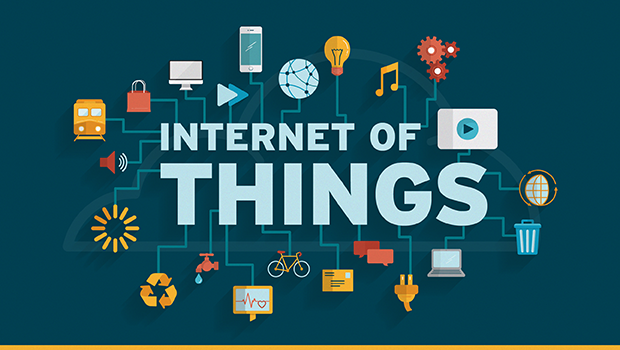Shop At Haya: Your Ultimate Shopping Guide
Discover the best shopping tips, trends, and deals for a smarter buying experience.
When Your Toaster Becomes Your Therapist: The Quirky Side of IoT
Discover how your toaster might be more than just a kitchen gadget—explore the quirky, surprising side of IoT therapy!
The Psychology of Smart Appliances: Can Your Toaster Really Listen?
The rise of smart appliances has transformed our daily routines, seamlessly integrating technology into the household. These devices, from refrigerators to toasters, are designed to enhance convenience, but their capabilities often raise questions about privacy and surveillance. As smart toasters become equipped with Wi-Fi and voice activation, many individuals wonder: can these appliances truly listen to us? The answer lies in the psychology of consumer perception and the technology behind these innovations. People often attribute human-like qualities to machines, a phenomenon known as anthropomorphism. This can lead to a belief that their smart toaster is watching or listening, even when it is not actively collecting data.
Moreover, the notion of smart appliances listening to us taps into deeper psychological concepts, such as trust and security. When consumers integrate devices that utilize voice recognition, they often grapple with the balance between convenience and potential breaches of privacy. Factors such as brand reputation and transparency play a significant role in shaping the user's emotional response. The psychology of smart appliances reveals that as we grow increasingly reliant on technology, our expectations and fears evolve, prompting critical questions about the ethical implications of how these gadgets operate. Will we trust our toasters to be just kitchen appliances, or will we unconsciously grant them a position in our lives that extends beyond mere functionality?

Connected Comfort: How IoT Devices Are Changing Our Daily Routines
Connected Comfort has transformed the way we approach our daily routines, thanks to the rise of IoT devices. From smart thermostats that learn your heating preferences to voice-activated assistants that manage your schedule, these innovations have created a seamless integration of technology into our homes. As a result, mundane tasks like adjusting lighting or controlling home security can now be done effortlessly, often with just a simple voice command or tap on a smartphone. This level of convenience not only enhances our comfort but also allows us to reclaim precious time in our busy lives.
Furthermore, the data generated by IoT devices helps us to make informed decisions about our daily habits. For instance, smart refrigerators can track food inventory and suggest recipes based on what you have, reducing food waste and making meal planning easier. Additionally, wearable devices monitor health metrics such as heart rate and sleep patterns, enabling us to maintain a healthier lifestyle. In essence, Connected Comfort is not just about luxury; it’s about fostering a lifestyle that prioritizes efficiency and well-being through the smart use of technology.
Are Our Homes Becoming Emotional Support Systems? Exploring the Quirky Side of IoT
As technology continues to weave itself into the very fabric of our everyday lives, homes are evolving into more than just shelters; they are becoming adaptive emotional support systems. With the rise of the Internet of Things (IoT), our living spaces are increasingly equipped with smart devices that cater to our emotional and psychological needs. Imagine coming home to a house that senses your mood and adjusts the lighting, temperature, or even plays your favorite calming music. This not only enhances your comfort but also fosters a sense of well-being, prompting us to question: are our homes now acting as companions in our emotional journeys?
Furthermore, the quirky side of IoT brings in an array of smart technologies that could easily be seen as unconventional, yet they perfectly illustrate this concept. From smart mirrors that provide encouragement with daily affirmations to mood-sensing ambient lights that change based on your emotional state, these devices exemplify how our homes are embracing their role as emotional support systems. This blend of functionality and sentimentality fosters an environment that is not only intuitive but also comforting, making us wonder if in the age of technology, our homes have truly become the ultimate allies in navigating our mental and emotional landscapes.